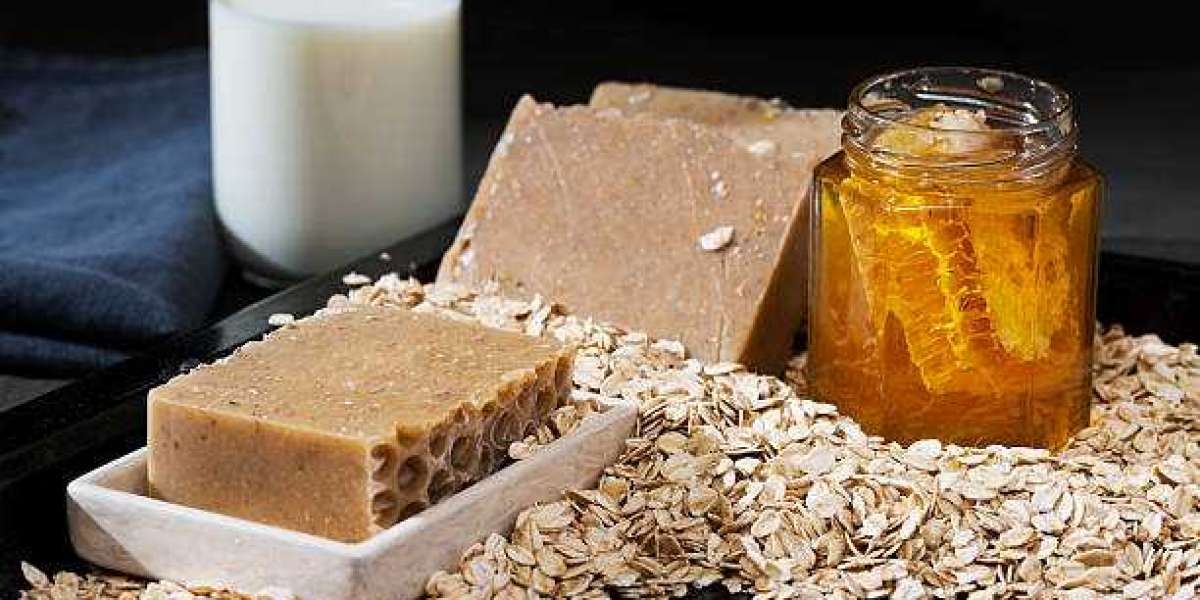Goat milk is a wonderful natural resource that can be used for a variety of purposes. It’s also a great additive for soap, as goat milk soap has numerous benefits and uses for the skin. Goat milk soap is gentler than many other soaps.
It’s especially good for sensitive skin and people who have allergies or are prone to rashes from other soaps. When combined with lye, goat milk produces a creamy lather that will leave your skin feeling soft and hydrated. The following information explains why you should consider making your own goat milk soap at home as well as some great DIY recipes and tips to get you started.
What’s in Goat Milk Soap?
Goat milk is widely used in skin care products and cosmetics because of its abundant nutrients, like proteins, vitamins A, B, C, E and minerals such as zinc, iron and selenium. When making soap, the fat molecules in the milk are broken down into glycerin and fatty acids such as oleic acid, stearic acid and palmitic acid.
Glycerin is a humectant, meaning it attracts and holds moisture in the skin. It’s also a very common additive in many beauty products because it’s non-toxic and very safe for use on the skin. Fatty acids are a key ingredient in many healthy skin products because they help the skin retain moisture, reduce inflammation and prevent breakouts.
There are also some proteins found in goat milk that can help soothe irritated skin. Goat milk also contains lactic acid, which can help exfoliate the skin and remove dead skin cells. All these ingredients make goat milk soap a great option for people with sensitive skin and those who suffer from allergies or have eczema.
Why Use Goat Milk for Soap?
As mentioned, goat milk contains many nutrients that are great for skin health. When these ingredients are combined with lye and other ingredients in soap, they create an excellent cleansing product that can be used on all skin types.
Goat milk soap can be used on children and adults alike. It’s also great for people who suffer from eczema, psoriasis, dermatitis or other skin conditions because of its gentle and soothing properties.
One of the biggest benefits of using goat milk soap is its ability to balance the skin’s pH levels. Most synthetic soaps are alkaline and can disrupt the skin’s natural pH balance. This can lead to a number of issues like inflammation, dryness, irritation, breakouts and sensitivity.
How to Make Goat Milk Soap at Home
Making your own soap is an excellent way to save money and customize your own product. It’s also a fun family activity that can be enjoyed during the winter months when you can’t be outside as much. There are a few ingredients you’ll need to make your own goat milk soap. Here’s a quick list of what you’ll need to get started:
Goat Milk - A key ingredient in goat milk soap is the milk itself. You can either buy goat milk at the store or use the leftover milk from when you make cheese.
Lye - This is a chemical used in the saponification process when making soap. It’s important to only use lye made for soap making and not the kind used for cleaning.
Water - Hot water is used to bring the lye and fat together. It’s also important to use distilled water when making soap due to its lack of impurities.
Oil - The oil used in soap is what creates a creamy lather when you wash your hands or face with it. When making soap at home, you can experiment with different oils such as olive oil, coconut oil or even avocado oil.
Scent - You can add a fragrance or essential oil to your soap for a special touch. You can also add dried herbs like lavender or rosemary for a soothing scent.
Benefits of Goat’s Milk Soap for Skin
As mentioned, goat milk soap has numerous benefits for the skin. Here are the top 5 benefits of using goat’s milk soap.
Clears Skin - The high levels of vitamins, fatty acids and proteins found in goat milk make it a great cleanser for the skin.
Exfoliates - The lactic acid found in goat milk soap can also help exfoliate the skin. This is good for preventing and removing blackheads, pimples, and other blemishes.
Moisturizes - The fat molecules in goat milk soap help the skin retain moisture and stay hydrated throughout the day.
Protects - The anti-inflammatory properties in goat’s milk soap make it a great way to protect the skin from harmful UV rays.
Soothes - The lactic acid found in goat’s milk soap can soothe the skin and calm irritation.
Recipes for Goat’s Milk DIY Soap
Making soap is an easy DIY project that can be done at home by just about anyone. There are tons of recipes for soap on the internet that use different ingredients and ratios. The best way to find a recipe that works for you is to try different ones and see what works best for your skin. Here are some common ingredients and ratios used when making goat milk soap: -
Fats - Soap is made from mixing animal fats with lye. The most common fats used include tallow, coconut oil, palm oil and olive oil.
Lye - This chemical is used to break down the fats and make soap.
Water - Hot water is used to dissolve the lye and fats together. It’s also important to use distilled water to avoid impurities.
Additives - Things like fragrance, colour and exfoliating beads can be added to your soap for an extra touch.
Conclusion
Goat milk is a great ingredient to add to soap as it has numerous benefits for the skin. When combined with other ingredients, it creates a creamy lather that cleanses and moisturizes the skin, while also protecting against UV rays. All you need to do is find a good recipe that works for your skin type and start making your own soap at home.
References:
1. Maintaining skin integrity in the aged: a systematic review
https://onlinelibrary.wiley.com/doi/abs/10.1111/bjd.12469
2. Effects of four soaps on skin trans-epidermal water loss and erythema index
https://onlinelibrary.wiley.com/doi/abs/10.1111/jocd.12758








